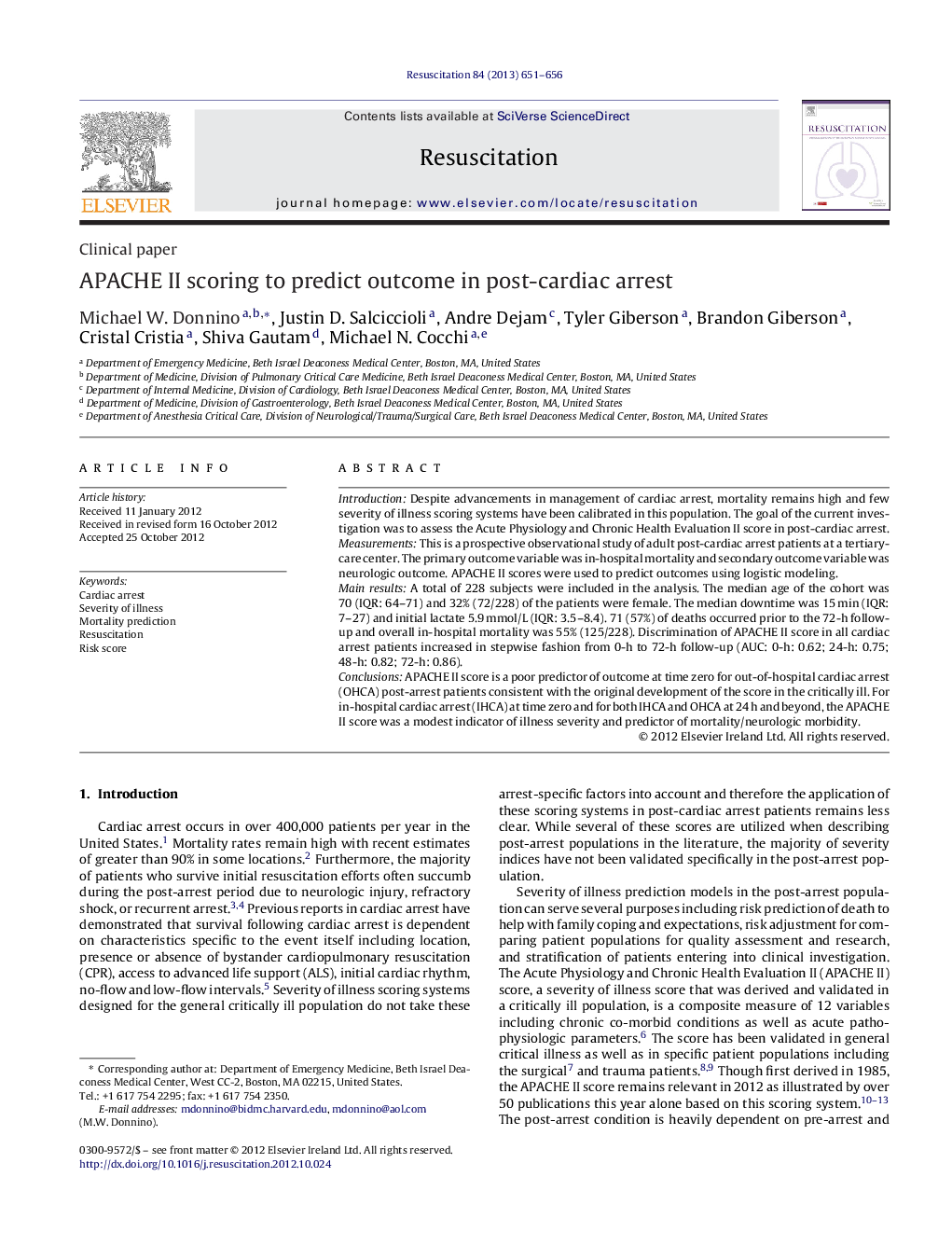| کد مقاله | کد نشریه | سال انتشار | مقاله انگلیسی | نسخه تمام متن |
|---|---|---|---|---|
| 5998771 | 1181447 | 2013 | 6 صفحه PDF | دانلود رایگان |

IntroductionDespite advancements in management of cardiac arrest, mortality remains high and few severity of illness scoring systems have been calibrated in this population. The goal of the current investigation was to assess the Acute Physiology and Chronic Health Evaluation II score in post-cardiac arrest.MeasurementsThis is a prospective observational study of adult post-cardiac arrest patients at a tertiary-care center. The primary outcome variable was in-hospital mortality and secondary outcome variable was neurologic outcome. APACHE II scores were used to predict outcomes using logistic modeling.Main resultsA total of 228 subjects were included in the analysis. The median age of the cohort was 70 (IQR: 64-71) and 32% (72/228) of the patients were female. The median downtime was 15Â min (IQR: 7-27) and initial lactate 5.9Â mmol/L (IQR: 3.5-8.4). 71 (57%) of deaths occurred prior to the 72-h follow-up and overall in-hospital mortality was 55% (125/228). Discrimination of APACHE II score in all cardiac arrest patients increased in stepwise fashion from 0-h to 72-h follow-up (AUC: 0-h: 0.62; 24-h: 0.75; 48-h: 0.82; 72-h: 0.86).ConclusionsAPACHE II score is a poor predictor of outcome at time zero for out-of-hospital cardiac arrest (OHCA) post-arrest patients consistent with the original development of the score in the critically ill. For in-hospital cardiac arrest (IHCA) at time zero and for both IHCA and OHCA at 24Â h and beyond, the APACHE II score was a modest indicator of illness severity and predictor of mortality/neurologic morbidity.
Journal: Resuscitation - Volume 84, Issue 5, May 2013, Pages 651-656